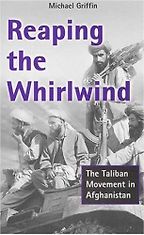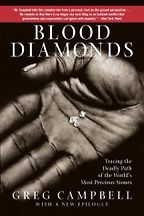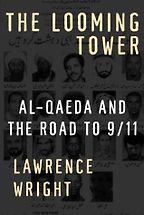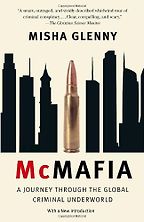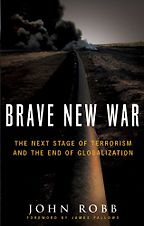Your first choice is Reaping the Whirlwind by Michael Griffin.
I chose this book because I think it provides a fascinating insight into the real nuances of political, religious and ethnic strife in Afghanistan through the period of the Afghan civil war and the rise of the Taliban. There are actually two editions of it. It was revised in 2003 but the original edition was written before the 9/11 attacks.
What is really interesting is how it describes how the Inter-Services Intelligence or ISI, Pakistan’s intelligence agency, created and nurtured the Taliban to fill the vacuum created by the Afghan civil war, and how the organisation was fed by weapons and money from Saudi Arabia, foot soldiers from the Pakistani madrassas and revenue from the opium trade. It also highlights the blundering interventions, particularly from American and Argentine oil companies, and their dealings with the Taliban.
It looks at the extent to which the Americans allowed the Pakistanis to get away with creating the Taliban, and this sense that when the Taliban captured Kabul in 1996 somehow this was a good thing and although clearly women’s rights were out the window the feeling was at least there was this opportunity where they could run pipelines through the country!
Intriguingly, it suggests a falling-out between bin Laden and Mullah Omah in early 1999, which provides the pretext for my novel.
It also explores the United States’ difficult relationship with Pakistan.
Yes. There has been an issue of fear on the part of the Americans, fear that if it came out how closely linked al Qaeda and the ISI were it might have jeopardised the survival of so-called allies like President Musharraf. For example, one of the fascinating episodes is when Michael Griffin writes about the Kunduz airlift, just two months after the 9/11 attacks, when the US moved to spare its Pakistani allies from international embarrassment. On 21 November 2001, the US air force halted air strikes on the northern Afghan city of Kunduz, ostensibly so that Mullah Fazil, the Taliban commander in the city, could organise its surrender, but, according to Griffin and other writers, in fact to allow Pakistani military planes to fly in and rescue the more than one thousand Pakistani soldiers and agents who were fighting alongside al Qaeda in the besieged city. Apparently, the evacuation quickly slipped out of control and, as an unintended consequence, anyone from al Qaeda with enough influence over the ISI, or anyone who was considered too dangerous to abandon to US interrogators, secured a seat to safety. So much for the War on Terror!
Your next book is Blood Diamonds by Greg Campbell.
This is a tale about diamond smuggling and what a curse diamonds have been to Sierra Leone and how diamond smuggling funded one of the most brutal rebel movements in modern history – the Revolutionary United Front.
I became particularly interested in it when I read the book and learnt to my astonishment that in July 2001, just two months before the 9/11 attack , a Lebanese diamond broker named Aziz Nassour arrived in Liberia with Ahmed Khalfan Ghailani, a 24-year-old from Tanzania, who was a member of the al Qaeda network.
Five Books interviews are expensive to produce. If you're enjoying this interview, please support us by donating a small amount.
Ghailani was accused by the FBI of buying the truck that destroyed the US embassy in Dar-es-Salaam in 1998. Nassour and Ghailani met up with the RUF rebels that controlled the diamond fields in neighbouring Sierra Leone and told them that they needed to convert large sums of cash into easily convertible, non-traceable commodities. They purchased 20 million dollars’ worth – enough to finance 40 attacks on the scale of 9/11. Nobody really knows what happened to those diamonds.
It is also interesting if you look at the intelligence failures that led to 9/11. If they had spent more time studying the administration of al Qaeda and following its financial links, it is possible that they could have prevented the attacks. Follow the money – I think that is the lesson.
All the books you have chosen were actually research for your new book, A Loyal Spy. What got you interested in Pakistan, Afghanistan and al Qaeda?
Really that came out of my time as an aid worker. I spent six years working with the HALO trust – which is the big mine clearance organisation, then four years running Landmine Action. So I worked in a number of these countries. I was up in the tribal areas of Pakistan surveying Soviet minefields on the border area in 2005. Then I was in Afghanistan looking at the road networks there and the threat from IEDs (improvised explosive devices). I’ve worked in Liberia and Western Sahara. I have been to a lot of these places and seen the landscape and that has helped me to try and make my novels more convincing. And for me that is part of the art of writing thrillers. There is a line in the book which says ‘the most convincing lies are sandwiched between truths’ and I think that is right – you need to get the detail so people can be drawn into your book and find them believable. I love reading thrillers and yet I am unconvinced by most of them, so I try and write the kind of thriller that I would want to read.
On the issue of Afghanistan and Pakistan, I am concerned that that the ongoing role of Pakistan’s ISI in destabilising Afghanistan is not fully appreciated. The ISI was responsible for channelling billions of dollars of Saudi and American funds to the most unsavoury and extremist elements of the mujahideen during the Soviet occupation of Afghanistan, including their pet islamopath Gulbuddin Hekmatyr.
Hekmatyr now runs the fastest growing terrorist network in Afghanistan, the group behind recent Kabul bombings. It is inconceivable that he is no longer in touch with his former masters and it is entirely credible that the ISI is using Hekmatyr to conduct a proxy war against India. The targets of recent bombings have included the Indian embassy and guesthouses frequented by Indians.
Furthermore the recent arrest by the Pakistanis of Mullah Baradar, the Afghan Taliban’s No 2, should not necessarily be interpreted as a great success. At the time of his arrest, Mullah Baradar was engaged in secret talks with the UN to find resolution to the war. The ISI moved swiftly and ruthlessly to close that channel of communication. The ISI’s ongoing support for the Taliban and associated networks is the elephant in the room. Our fear of instability in Pakistan prevents us from confronting the root cause of Afghanistan’s current and historical woes.
Blowback from the cold war abounds and as long as it does espionage writers like me will have rich sources to draw on!
You tell me that your next book, The Looming Tower by Lawrence Wright, was a difficult choice.
Yes, in that I could just have easily chosen Steve Coll’s excellent Ghost Wars. But, eventually, I went for this because it really does read like dramatic fiction. It is a history of radical Islamism and the road to 9/11. It also explores the failure of the CIA to share vital information with the FBI that might have allowed them to unravel the plot. Certainly for the administration side of al Qaeda there was a lot of information in Yemen that was never properly shared in terms of links to satellite phones that might potentially have led the FBI to uncover the plot.
That is always a problem, isn’t it? Even people who are meant to be on the same side because of factions and rivalry end up being detrimental to the bigger picture.
Absolutely. It’s funny, I like conspiracy theories but I really don’t believe in them. I am a great believer in the general incompetence of government. So there is this big problem within the intelligence community of the competition between the agents and their unwillingness to share information. And cultures of secrecy create opportunities that could be exploited by terrorists. My book is based around a bungled assassination attempt on Osama bin Laden in 1999, a flawed cover-up and the fall-out that ensues.
The Looming Tower is also exploring those kinds of themes – how terrorism and crime can flourish despite our attempts to stop it. There is a fantastically flawed and divisive hero, John O’Neill, who led the FBI’s fight against bin Laden, but resigned in August 2001 to go and work at the World Trade Centre. He died on 9/11. It was O’Neill who understood that al Qaeda has four distinct arms: intelligence, administration, planning and execution.
The book also has a great title – it is taken from a videotaped speech by bin Laden that was found on the computer of one of the members of the Hamburg cell. The cell would go on to bring down the towers. It is a quote from the fourth Sura of the Koran – ‘Death will find you, even in the looming tower.’ The final section of my book is called ‘Death will find you’.
Your next book, McMafia by Misha Glenny, highlights the connection between crime and terrorism.
Yes, with my next two choices I am trying to bring together some of the issues that have been rattling around in my head. This book really leads you into the world of international crime, gang operations, sex slavery and money laundering, etc.
And it reveals how the global marketplace has really empowered criminals on a huge and terrifying scale. For instance, members of the Mumbai underworld assisted the Pakistani ISI to smuggle in the RDX explosives that were used in the Mumbai bombings in March 1993.
One area I find him very interesting on is what has become of the cold war spy agencies. He looks at how the Bulgarian DS created an arm called the Covert Transit Directorate whose primary role was to smuggle weapons to African rebel groups, but soon the channels were used for people-trafficking and for drugs. In the 1980s 80 per cent of the heroin destined for the European market would cross into Bulgaria from Turkey at the Kapetan Andreevo crossing point and into the hands of the Covert Transit Directorate. The DS established an economic monopoly after the fall of communism – DS members founded 90 per cent of the joint stock companies created after the opening of private enterprise in Bulgaria in 1986. All this is a chilling example of opportunism and how well qualified these groups are to carry it through.
In my book it is the Covert Transit Directorate that the fugitive Jonah turns to in Iraq in 2005, when his cover is blown and he needs to smuggle himself back into the UK to try and stop a spectacular terrorist attack.
Your last book is Brave New War by John Robb.
This is a book that everybody should read, particularly anybody who cares about national security. I have been to various meetings at the Foreign Office and other places and every time I meet anyone who has anything to do with counter-terrorism I say, you must read this book. And, in the manner of civil servants, they usually nod and it is very clear they have no intention of reading it, which makes me more frightened.
John Robb who wrote it is a counter-terrorism expert and a former red team player. In other words, he is one of these guys who think up ways of how to destroy his own side. He plays the enemy. To follow on from what I was saying about McMafia, he shows how networks, be they criminal or terrorist, have linked up with each other to create a new type of terrorism.
He describes a future in which small ad-hoc bands of insurgents will identify and exploit gaps in vital systems and generate a huge return. The book also describes the growth of the terrorist marketplace and how it behaves like a bazaar. Terrorist networks now outsource to freelancers – for instance, they buy in a hollowed-out car from a chop shop to create a vehicle-borne IED (improvised explosive device), and stack of artillery shells from a local insurgent group. Their actions are designed to provoke copycat attacks, as other networks in the bazaar innovate and identify new weaknesses.
Get the weekly Five Books newsletter
One particular event that Robb describes caught my attention: during the summer of 2004, a small group of insurgents blew up a southern section of the Iraqi oil pipeline infrastructure. Their maps were highly accurate and showed exactly which pipeline, buried in a maze of others, was the critical one they wanted. They had only to dig a six-foot hole in the sand, place the charges and detonate them. The explosion itself wasn’t even that large, but it was more than sufficient to burst the shell of the 48-inch high-pressure oil line.
The attack cost an estimated $2,000 while the explosion cost Iraq $500 million in lost oil exports – a rate of return 250,000 times the cost of the attack. I think we have been lucky so far that more of this type of thing hasn’t happened, but the potential is there.
May 25, 2010. Updated: April 29, 2022
Five Books aims to keep its book recommendations and interviews up to date. If you are the interviewee and would like to update your choice of books (or even just what you say about them) please email us at [email protected]
